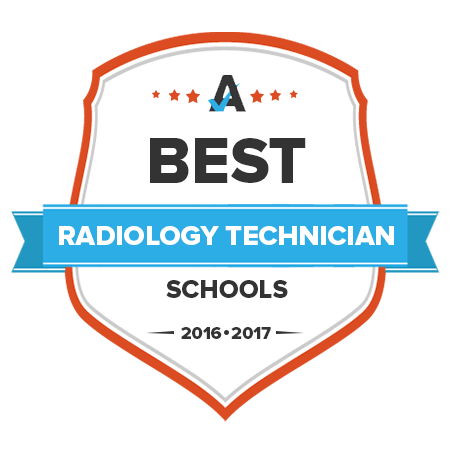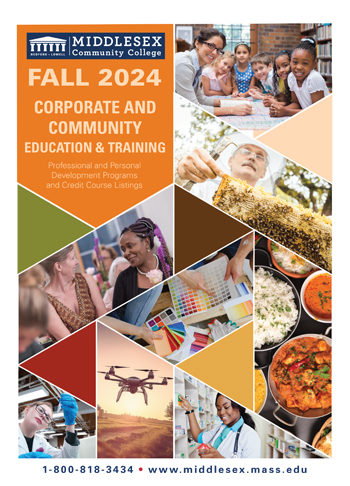Radiologic Technology
Learning Comes Alive Here
Radiologic Technology Program
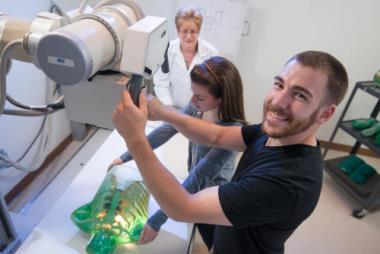
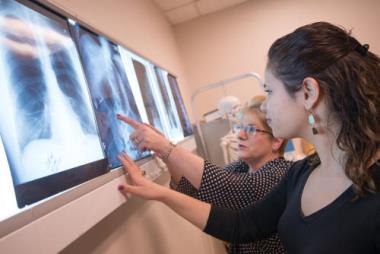
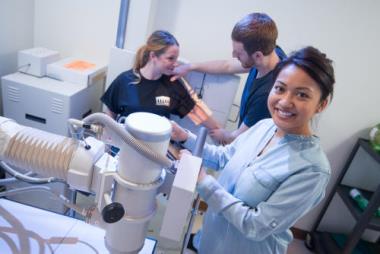
Program Description:
The Radiologic Technology Associate in Science degree program reflects the combined efforts of educators and health care professionals in preparing students for entry into a professional specialty that is an important part of the health care delivery system. Program graduates are eligible for the national certification examination of the American Registry of Radiologic Technologists, licensing in the state of Massachusetts, and immediate entry into the radiology workforce.
Students are provided a background in the technical skills necessary to produce quality radiographs used for diagnosis of disease and injury by radiologists and other physicians. Emphasis is placed on radiation safety principles and procedures, as well as concepts and theory. That knowledge is reinforced and put into practice through clinical experience in an area hospital. Theory is taught in logical sequence, guiding students through patient-centered activities related to producing radiographs. While in the program, students are given an opportunity to investigate other imaging modalities, such as computed tomography and magnetic resonance imaging. Many Radiologic Technology graduates continue their education, pursuing additional professional credentials.
Mission Statement
The mission of the Radiologic Technology program is to provide a high-quality equitable learning environment, which will prepare a diverse group of Radiographers for the evolving workforce. Through clinical partnerships, students will provide the highest level of quality and empathetic patient care, perform a variety of diagnostic procedures safely, and demonstrate professionalism.
Program Goals
- Students will be clinically competent.
- Students will communicate effectively.
- Students will demonstrate effective critical thinking skills.
Student Learning Outcomes:
- Students will position patients accurately.
- Students will practice radiation safety following ALARA standards.
- Students will exhibit professional behaviors.
- Students will demonstrate effective written skills.
- Students will demonstrate effective oral communication skills.
- Students will perform non-routine exams effectively.
- Students will modify technical factors and exposure indexes.
Student Testimonial
"All that I have learned at MCC in class and clinical during the first year still shocks me; physics, patient positioning, equipment manipulation, radiation protection, and how to image infants, children, trauma patients, and disabled patients."
Program Accreditation:
The Radiography program is accredited by the
Joint Review Committee on Education in Radiologic Technology
20 North Wacker Drive, Suite 2850
Chicago, IL 60606-3182
312-704-5300
Email: mail@jrcert.org
The program's current accreditation award is 8 years. General program accreditation
information and the current accreditation award letter can be found here. https://www.jrcert.org/programs/middlesex-community-college/
Program Effectiveness Data:
The following is the most current program effectiveness data. Our programmatic accreditation agency, the Joint Review Committee on Education in Radiologic Technology (JRCERT), defines and publishes this information. Click here to go directly to the JRCERT webpage
Credentialing Examination: The number of students who pass, on the first attempt, the American Registry of Radiologic Technologists (ARRT) certification examination, or an unrestricted state licensing examination, compared with the number of graduates who take the examination within six months of graduation. The five-year average benchmark established by the JRCERT is 75%.
|
Credentialing Examination Rate |
number passed on 1st attempt divided by number |
|---|---|
|
Year |
Results |
|
Year 1 - 2019 |
16 of 17 - 94% |
|
Year 2 - 2020 |
15 of 15 - 100% |
|
Year 3 - 2021 |
15 of 18 - 83% |
|
Year 4 - 2022 |
13 of 14 - 93% |
|
Year 5 - 2023 |
10 of 12 - 83% |
|
Program 5-Year Average |
69 of 76 - 91% |
Job Placement: The number of graduates employed in the radiologic sciences compared to the number of graduates actively seeking employment in the radiologic sciences within twelve months of graduating. The five-year average benchmark established by the JRCERT is 75%.
|
Job Placement Rate |
number employed divided by number actively |
|---|---|
|
Year |
Results |
|
Year 1 - 2019 |
16 of 17 - 94% |
|
Year 2 - 2020 |
15 of 15 - 100% |
|
Year 3 - 2021 |
18 of 18 -100% |
|
Year 4 - 2022 |
14 of 14 - 100% |
|
Year 5 - 2023 |
12 of 12 - 100% |
|
Program 5-Year Average |
75 of 76 - 98% |
Program Completion: The number of students who complete the program within the stated program length. The annual benchmark established by the program is 75%.
|
Program Completion Rate |
number graduated divided by number started the |
|---|---|
|
Year |
Results |
|
Year - 2023 |
12 of 15 |
|
Annual Completion Rate |
80% |
Contact:
Professor William Darmody
darmodyw@middlesex.edu
781-280-3942
